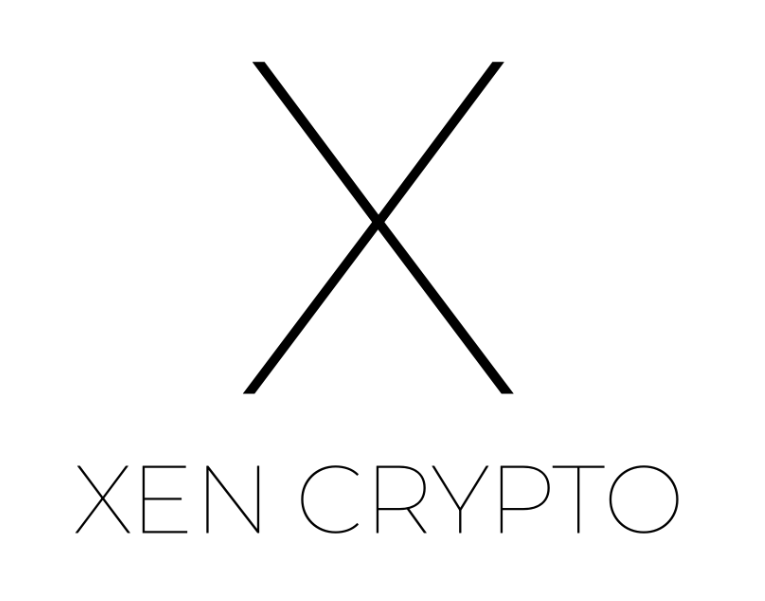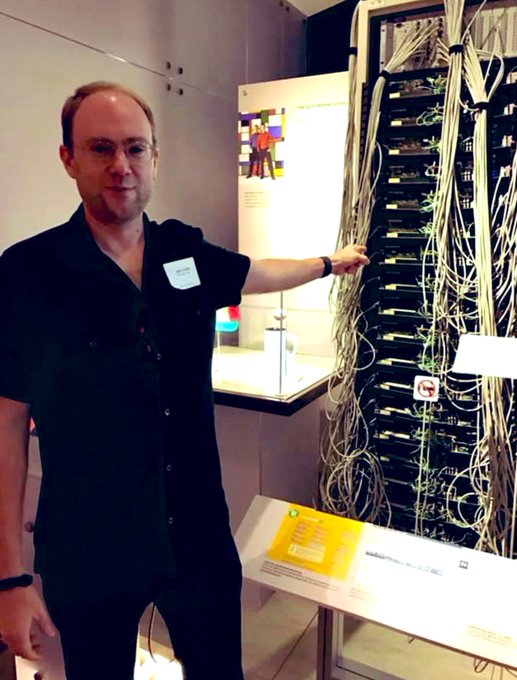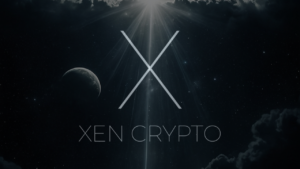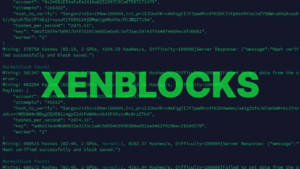Jack Levin (born in 1974, St. Petersburg, Russia) emigrated with his family to the United States in 1990, where he studied computer science at the University of Missouri. He played a key role in building an early Google infrastructure, and he’s known in the tech industry as a serial entrepreneur who built a series of startups and as an angel investor. He got interested in Bitcoin in 2010 and remains in the crypto space to this day. After a string of successes, he recently came up with something special that has the power to change the world. Levin is creating XEN, a global currency for the people.
Google #21
Levin’s interest in technology started at the age of 16 when he got his first computer and learned by downloading and reading documents from Usenet groups. He became an expert-level Web 1.0 developer, server system architect, network designer, and Linux master and moved to Silicon Valley, where he was doing security for offices and early Internet on-ramp companies. After creating the first open source embedded computer running Linux with a firewall and a VPN, he met Google’s founders, Sergey Brin and Larry Page, in 1999, and he got a job as their 21st early employee.


Page believed Levin was knowledgeable about Linux and entrusted Google to him. Google developers would use his “Linux on a chip” for security purposes and communication encryption. He designed Google’s cloud network and single-handedly designed the first three data centers. He was also overseeing early partnerships with Netscape, Yahoo, AOL, ASK, and many others. When the company started growing fast, he got a team to help him. When Google reached over 8,000 employees, he no longer felt he had an impact and left in 2005. Page was his mentor, who taught him that you can take on more challenging projects and succeed due to the fact that you won’t get a lot of competition.
The startups founder
Levin co-founded ImageShack, which began as a free image hosting service and grew to become a $56 million success, ranking 11th in the Alexa world website ranking. The company ran a service called Yfrog for Twitter. It was used as the backend infrastructure of Twitter to run images and videos and present them to the community. It mastered the newly invented Google Ads service for monetization purposes, switching to a subscription model in 2014. Nventify is another service he co-founded. The Imagizer Media Engine from Nventify speeds up the delivery of images, their compression, and their resizing. This means that clients don’t have to store images that have been resized, which frees up their storage space.

The Bitcoin adventure
In 2010, one of his friends from Google told Levin about Bitcoin, and he immediately loved the idea of peer-to-peer money. For him, Bitcoin was basic yet powerful, as most basic ideas are. It was based on ideas from others from 20–30 years ago. The internet made it viable, open source gave it more life, and faster CPUs made true unbreakable encryption possible.
He started mining Bitcoin in 2011 because he understood the value of cryptography and the importance of holding your own keys. He had one data center with four racks, with 35 servers each, and three Nvidia and ATI video cards in each one. At that time, bitcoin was trading at $1–3. He wanted to use excess electricity to supplement his data center bills, but in the end, he never sold it to pay for the bills.
In 2014, he switched for some time to ASICS to stop mining when he ran out of hash power. His friends would occasionally receive bitcoin as a gift from him, and one even recently bought a house with it.

Moving on from Bitcoin
That being said, Levin is not interested in wasting electricity, and he believes that Proof of Work is obsolete technology. His interests align with those of early Google: improving people’s lives and providing opportunities for success.
Levin liked the Bitcoin idea, but he believes it has moved away from its original purpose of being there for the people. It became a gambling device and an institutional financial instrument. Institutional adoption means overt centralization and the removal of value from the blockchain because most of it will be traded off-chain with control over on-chain value.
Levin decided to relaunch Satoshi’s original idea as XEN and give power back to individuals because Bitcoin was slowly moving toward an intermediary model.
XEN - people's token
XEN is a token given freely by the blockchain. It’s based on first principles like self-custody, trustless consensus, and decentralization.
Jack Levin is curious about learning and understanding new things, including the universal laws of existence and the emergence of intelligent life. He believes that the wrong interpretation of the second law of thermodynamics implies a descent into chaos, where nothing is further from the truth. The transformation of energy from high states to low gives rise to consciousness and life itself.
XEN is built on the same principle of a rising consciousness leading to a self-organizing society and life. A seemingly chaotic community, wanting value in something separate such as a token, is driven to realise they are themselves the primary value. And XEN is a representation of this collective will.

He says that humans seek pleasure, and advanced humans seek hardship. This hardship is visible all over the XEN whitepaper. It’s in no pre-minted tokens, no centralised ownership, no control, and it’s open source. Such a trustless setup of the XEN smart contract means that Levin or anyone else will never be able to undo the benefit given by XEN. People generating their own tokens and undergoing the hardship of delayed gratification through time is what gives the token even more value. XEN has no initial or finite supply, and, like Bitcoin, XEN needs individuals to mint it for themselves, achieving the broadest possible decentralisation and disinflationary effect as time passes by.
Levin founded the Fair Crypto Foundation to empower individuals through freedom to create their economic energy and to direct it without the hindrance of centralized control systems. Jack Levin is a selfless man who likes to help communities and wants to see a better world.
XEN is his vision and a tool for this to happen.









